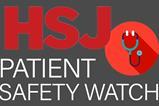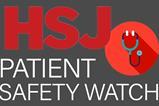HSJ hosts the Patient Safety Watch newsletter, written by Patient Safety Watch chief executive James Titcombe.
Good afternoon and welcome to the latest edition of the Patient Safety Watch newsletter.
Poor maternity care ‘all-too-frequently tolerated as normal’
A report for the All-Party Parliamentary Group on Birth Trauma has called for maternity care to be overhauled, including the appointment of a maternity commissioner to lead a national maternity improvement strategy that would encompass 12 recommendations.
Among the key themes identified in the Listen to Mums: Ending the Postcode Lottery on Perinatal Care report were: a failure to listen to women; poor communication; lack of pain relief; and poor quality postnatal care, which was “almost universal” across all submissions to the inquiry; and an inability of hospitals to deal with complaints sensitively.
The report read: “The stories told by parents were harrowing. They included accounts of stillbirth, premature birth, babies born with cerebral palsy caused by oxygen deprivation, and life-changing injuries to women as the result of severe tearing… The picture to emerge was of a maternity system where poor care is all too frequently tolerated as normal, and women are treated as an inconvenience.”
Review highlights high workloads and poor monitoring of midwifery units
A report from the Maternity and Newborn Safety Investigations programme on learnings from 92 safety incidents involving care from midwifery units has found common themes of high workloads, poor monitoring, a lack of preparedness for common safety-critical scenarios, and inefficient telephone triage systems.
In particular, the researchers found that problems either carrying out or interpreting the results of fetal monitoring were a factor in almost half (49 per cent) of the cases considered.
MNSI director Sandy Lewis said: “Our investigations have demonstrated very clearly how supporting staff through appropriate training, ensuring consistent and robust triage processes are in place, and implementing an effective fetal heart monitoring approach are all critically important.
“While the report draws on analysis of incidents specifically involving midwife-led units, all maternity services must prioritise actions to mitigate safety risks regardless of the setting or mode of birth. As such, the learning we highlight is equally relevant to other birth settings, including hospital obstetric units, and we hope the report will prompt discussion and reflection among professionals across the sector.”
England not on track to meet stillbirth target, report finds
The Sands and Tommy’s Joint Policy Unit has published a comprehensive report looking at progress made in the UK towards saving babies’ lives.
The report concludes that in England, we are not on course to meet government ambitions to reduce rates of stillbirth, neonatal death, or preterm birth, and there continue to be stark and persistent inequalities in rates of pregnancy and baby loss by ethnicity and deprivation.
The report also highlights that government investment in maternity and neonatal services is falling short of the amount needed to support comprehensive improvements.
My views? Yet again we start this newsletter with the topic of maternity safety with three reports that focus on different areas but tell a similar story. Understandably, there has been a lot of news coverage this week offering commentary and sharing harrowing accounts of the impact of poor maternity care on women, families and maternity staff – I’d like to signpost a couple here.
First, this piece by the brilliant Isabel Hardman for The Spectator and secondly, this piece in the i newspaper which includes an interview with bereaved mum Katie Fowler. Katie’s words capture many of my own thoughts (and I’m sure many others) perfectly.
Where do we go from here? The Birth Trauma Inquiry report has made several recommendations. In response, the government has committed to publish a “comprehensive national maternity strategy”.
This is something that should not be rushed into. Maternity services have been the focus of intense policy initiatives for several years, with evidence of successes in some areas (overall levels of perinatal mortality have reduced, although recent data shows an increase in 2021) but not in others (maternity mortality has increased, disparities in outcomes depending on ethnicity and deprivation remain unacceptable and the themes of major inquiry reports are repeated time and time again).
A new national strategy is needed, but it must be informed by a whole system review of maternity services that ensures we understand and tackle the deep causes of problems rather than simply dress the symptoms. Care must also be taken to ensure we don’t simply introduce new layers of complexity to an area already overloaded with priorities.
In other news this edition…
Antimicrobial resistance could make covid look ‘minor’, says ex-chief medical officer
England’s former chief medical officer and now the UK’s special envoy on antimicrobial resistance Dame Sally Davies has told The Guardian failure to address drug-resistant infections within the next decade would be “really disastrous”, adding: “It would make some of covid look minor.”
Dame Sally lost her 38-year-old goddaughter two years ago to an untreatable infection, adding the team treating Emily Hoyle “tried everything”.
At the moment, drug-resistant infections kill at least 1.2 million people a year worldwide, making it a leading cause of death. The government has recently announced a national action plan for AMR, including reducing the use of antimicrobials.
‘Beyond critical’ medicine shortages now a daily issue for pharmacists and patients
A survey by Community Pharmacy England has found people are enduring the effects of medicine shortages daily, with almost three-quarters of pharmacists (72 per cent) saying they run into issues with short supply multiple times a day. A similar proportion (79 per cent) said they feared the issue was putting patient health at risk.
Describing the situation as “beyond critical”, Community Pharmacy England chief executive Janet Morrison said: “Our findings make distressing reading, and they should be ringing alarm bells for anybody interested in protecting the health and wellbeing of local communities and the public.”
Sharing some good stuff…
Countdown to Congress
HSJ Patient Safety Congress – now in its 17th year – is taking place on 16 and 17 September in Manchester. Among the many highlights of the programme is a keynote interview followed by a panel discussion with Merope Mills and Paul Laity, parents of Martha Mills.
Thirteen-year-old Martha tragically died from sepsis in 2021, after consultants failed to act on her family’s concerns about her worsening condition until it was too late. Her death has sparked the introduction of Martha’s Rule – a round-the-clock right for patients, their families and their carers for an urgent review if they are concerned their or their loved one’s condition is worsening – which is being rolled out across the NHS.
You can find more information and book your ticket here.
Book your place and showcase your work at Baby Lifeline’s National Maternity Safety Conference
Baby Lifeline is hosting its fifth annual National Maternity Safety Conference on 26 September 2024 in Birmingham. The focus of this year’s event is solutions to challenge and improve maternity and neonatal care (and news this edition highlights how important this is), showcasing best practices from across the UK and overseas. Speakers announced so far include Rob Behrens, Lucy Easthope, Ranee Thakar, Donna Ockenden, Charlotte Elvander, and Donald Peebles. Find out more and book your place.
And, if you’re interested in sharing your work, the call for abstracts for oral presentations and posters is open. The Baby Lifeline team is specifically looking to feature quality improvement projects with outcome data.
Evaluation of Maternity Investigations and Review Tools – Call for research participants
A new study is looking to carry out audio-recorded interviews with parents who have suffered a serious event – such as the death or brain injury of their baby – which has been investigated by MNSI (formerly HSIB) or reviewed using the Perinatal Mortality Review Tool since January 2019. The researchers are examining how well England’s review and investigation processes when a baby is harmed or dies work for parents and are particularly keen to hear from non-white women and women from less affluent backgrounds. The team can be contacted via matrep@manchester.ac.uk. Further information for parents and families is available here.
NHS Patient Safety Syllabus Training Programme
The NHS Patient Safety Syllabus forms a key part of the NHS Patient Safety Strategy, and the first two e-learning modules are now available for anyone working in the NHS here.
Level 1 covers the essentials of patient safety and is a basic introduction to viewing safety from a proactive risk mitigation stance taking into account the systems factors. It also includes a module for boards and senior leadership teams.
Level 2 is intended to help create a change in mindset to one of proactive approaches to risk, and it is hoped will help lead to a step-change in patient safety. It’s at a level that’s appropriate for a large proportion of staff: all nursing staff at band 5 and above, all doctors, all risk and governance staff, and all senior managers.
Rose Jarvis, who has led the syllabus’s development told me that, as of December 2023, approximately 1.9 million sessions of level 1 and almost 500,000 sessions of level 2 have been completed – positive news indeed!
The power of X!
X (or Twitter as it will always be to me) has its downside but it can also be a tremendously powerful tool for sharing information and learning. This week I came across a fantastic account run by the Kaizen Team (kaizen is a Japanese word meaning change for the better or continuous improvement) at Leeds Teaching Hospitals. It’s great to see examples of improvement work shared in this way.
“Optimism isn’t a belief that things will automatically get better; it’s a conviction that we can make things better” – Melinda Gates
For the next edition, I’ll try to collate some other examples where healthcare organisations are using X in a similar way – a cause for optimism!
That’s all for this edition. Please look out for our next newsletter in two weeks’ time. In the meantime, thanks for reading and stay safe.
James Titcombe































No comments yet